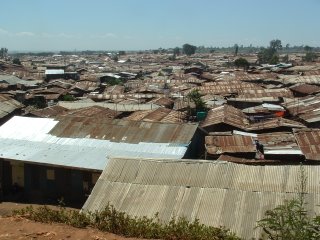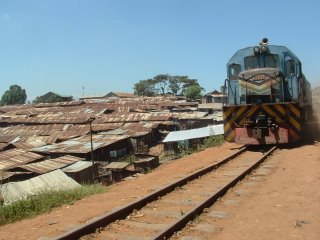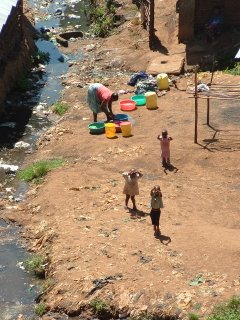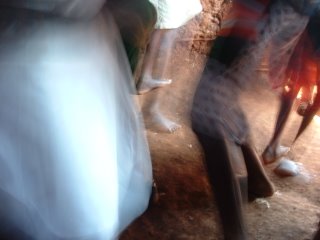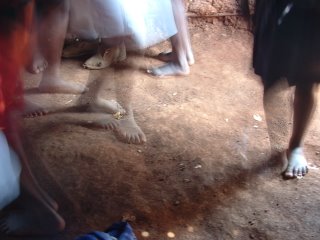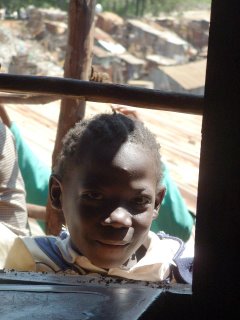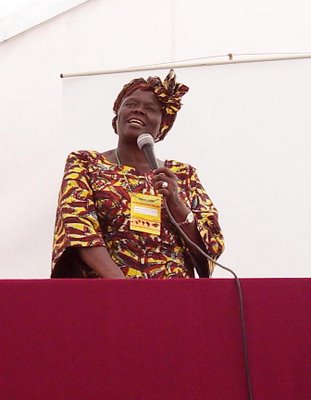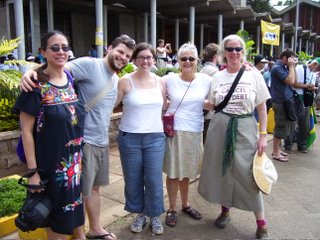Off to Zambia
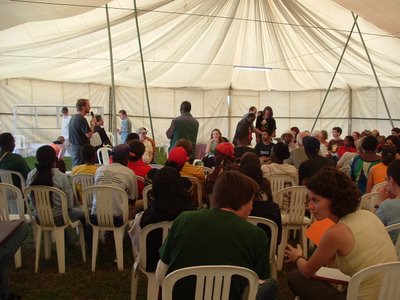
Wednesday was our last full day in Kenya. We spent the afternoon in a session with other debt activists, drafting a strong statement on debt and discussing local actions and how we could join together. Above is Neil, the Director of Jubile USA, and Lydie of the Philippines. They led us in this session.

All around the stadium (where the forum took place) venders were selling their wares.
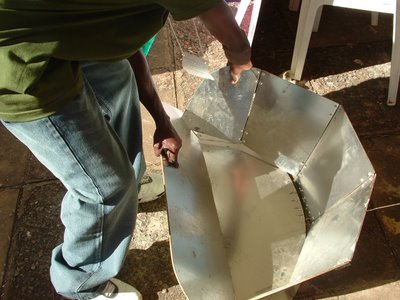
Some were teaching about new technologies, like solar cookers. We bought one for $10, to try out in Malawi. It takes considerably longer to cook with the sun, but this method saves money and trees (a great need in heavily deforested Malawi).
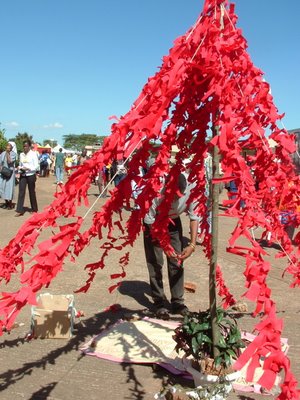
People were tying red ribbons on this makeshift tree in memory of people who had died of AIDS.
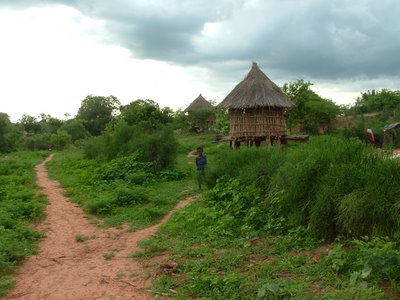
On Thursday morning, we flew from Nairobi to Lusaka, Zambia. After checking into our hotel, we went to an informational session with Jubilee Zambia and the Civil Society for Poverty Reduction. They introduced us to issues of Zambian economics and the proposed VAT (value added tax - recommended by the Internation Monetary Fund) of 18% on all food and printed goods (a very contentious issue for the poor).
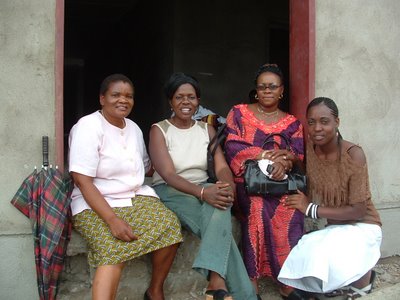
Margaret, our partner from Malawi, met us here in Zambia. She lived here until her late teens, when she returned to her native country. (Margaret is the one on the far left.) She and her niece Dorothy accompanied us on Friday to a rural health clinic in Siavonga - a back breaking three hour ride away. We toured the facility, witnessed the dwindling drug supply, and talked with hard-working, poorly paid nurses and a doctor about the needs of the community.
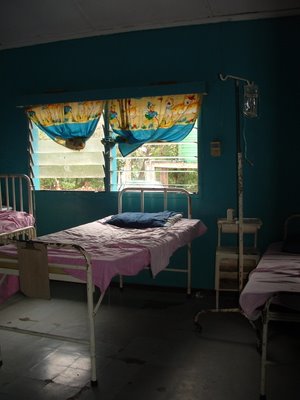
Below are some of the ARVs (anti-retroviral drugs for AIDS patients) used throughout the region. Nevirapine is given to HIV+ pregnant mothers to prevent the transmission of the disease to their unborn children. In Malawi, pregnant women are encouraged to be tested for HIV so they can use this very important drug. Many, however, are unwilling to be tested. In some cases, they need their husbands' permission. Husbands may consider their wives' desire to be tested as an admission to unfaithful behavior. Or the husbands may feel it as an accusation towards their behavior. In either case, it is very difficult for a woman to get an HIV test of her own accord. As such, many babies are still being born with HIV.
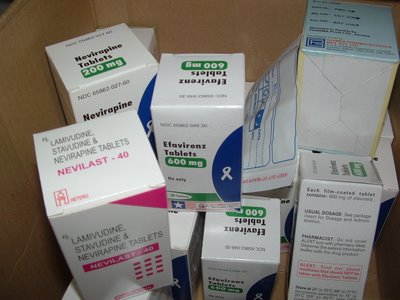
On Saturday, we visited the Kalingalinga AIDS Hospice in Lusaka. This project is run by the Franciscans. It houses 32 terminally ill patients, giving them the utmost quality of care in their final days. It was a very moving experience to meet with these patients, especially when we have seen so many people in the late stages of AIDS who have nothing but a thin grass mat to lie on.
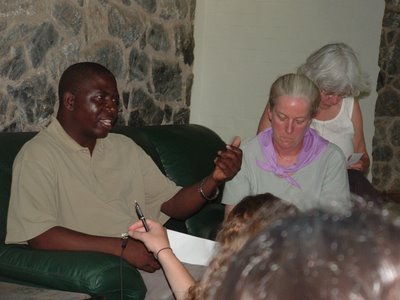
After our visit to the hospice, we met with several Zambian MPs (Ministers of Parliament) to discuss the country's debt issue. Currently, all of the countries loans are only approved through the Cabinet. The MPs are working to create a bill that would require the MPs to be involved in this process - which would create more transparency and accountability in the government. We talked about the proposed 18% Value Added Tax, which they oppose for several reasons: (1) there is already a high income tax (2) these goods are already being taxed during importation, (3) these taxes would harm poor local people and keep them from participating in the formal economic system.
One MP left us with a powerful thought: "Forcing Zambians to pay this tax is like squeezing a stone to get juice." The money is not with the poor. It is with the international corporations that use the country's resources. International corporations here have a five year "tax holiday" in which they are exempt from paying taxes. After five years, they usually transfer ownership to a crony or change business names to qualify for another five year exemption. Meanwhile, the working class are shelling out over 30% of their salaries to the government. Something is definitely wrong. And that "something" lies with creditors like the International Monetary Fund and World Bank, who "encourage" this type of economic development at the expense of the poor.
